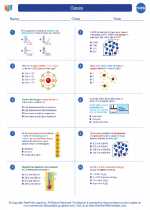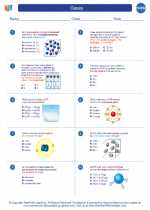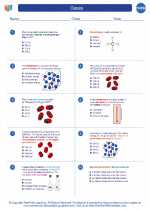Treatment in Chemistry
Treatment in chemistry refers to the process of subjecting a substance or a mixture to a series of physical or chemical processes in order to alter its properties or composition. This can be done for various purposes, such as purification, separation, or to produce a desired chemical reaction.
Types of Treatment
There are several types of treatment processes used in chemistry:
- Purification: This involves removing impurities from a substance to obtain a pure product. Common purification methods include filtration, distillation, and recrystallization.
- Separation: Treatment can also be used to separate a mixture into its individual components. Techniques such as chromatography, centrifugation, and extraction are often employed for this purpose.
- Chemical Reaction: Treatment can be used to induce a chemical reaction in a substance, leading to the formation of new products with different properties.
- Stabilization: Some treatments are aimed at stabilizing a substance to prevent degradation or unwanted reactions.
Applications
Treatment processes are widely used in various industries and research fields:
- Pharmaceuticals: Purification and separation techniques are critical for producing pure drugs and pharmaceutical compounds.
- Environmental Remediation: Treatment processes are used to remove pollutants from air, water, and soil, helping to clean up contaminated sites.
- Materials Science: Treatment methods are used to modify the properties of materials, such as metals, polymers, and ceramics, to make them suitable for specific applications.
- Food and Beverage Industry: Treatment processes are used for food preservation, flavor enhancement, and the production of various food products.
Study Guide
When studying the topic of treatment in chemistry, it's important to understand the various treatment methods and their applications. Here are some key points to focus on:
- Learn the different purification techniques, such as filtration, distillation, and recrystallization, and understand when each method is most appropriate.
- Study the principles of separation techniques, including chromatography, centrifugation, and extraction, and how they are used to separate mixtures.
- Understand the factors that influence the success of a chemical reaction during treatment, such as temperature, pressure, and catalysts.
- Explore real-world examples of treatment processes in different industries to appreciate the practical applications of these methods.
By mastering the concepts and applications of treatment in chemistry, you'll gain a deeper understanding of how substances can be manipulated and transformed for various purposes.
.


